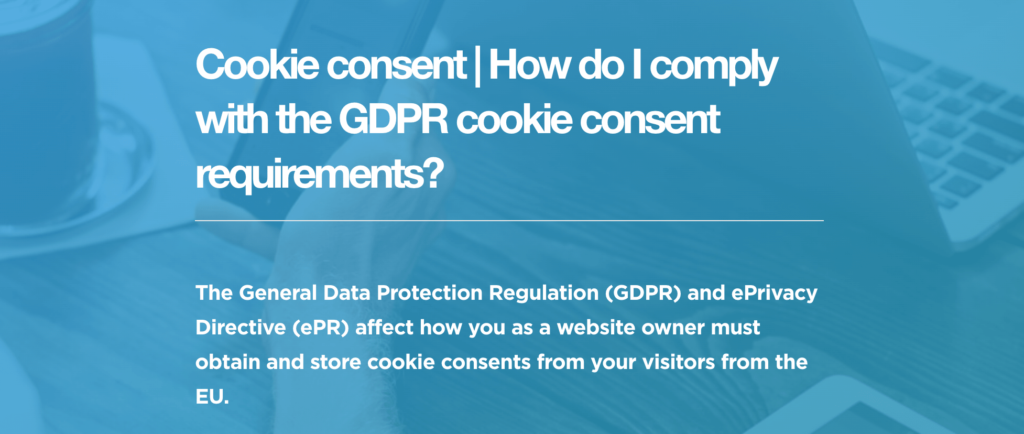A cookie is a tiny bit of data that a website intimates the browser to stock up in the computer or mobile device. Cookie keeps track of the activities within the website so that it can retain information about the visitor at a later time.
Table of Contents
ToggleWhat is Cookie?
A “cookie” in the context of web technology is a small piece of data stored on the user’s computer by the web browser while browsing a website. Cookies were designed to be a reliable mechanism for websites to remember stateful information (such as items added in the shopping cart in an online store) or to record the user’s browsing activity (including clicking particular buttons, logging in, or recording which pages were visited in the past).
Types of Cookies
- Session Cookies: These are temporary cookies that are deleted when you close your browser. They are used to store temporary information, like what’s in your shopping cart.
- Persistent Cookies: These cookies remain on your device even after you close your browser. They are used to remember you and your preferences for subsequent visits to the website.
- First-Party Cookies: These are set by the website you’re visiting and can only be read by that site.
- Third-Party Cookies: These are set by domains other than the one you are visiting, typically by companies that serve ads or track browsing data for analytics purposes.
- Secure Cookies: These are transmitted over secure (HTTPS) connections only.
- HttpOnly Cookies: These cannot be accessed by client-side APIs, like JavaScript, and are used for storing session identifiers.
How Cookies Work
Setting Cookies: When you visit a website, the website sends a request to your browser to store a cookie on your device.
Reading Cookies: On subsequent visits or during the same session, the website reads the cookie to identify you and possibly tailor the content based on the stored information.
Expiration: Cookies have an expiration date, after which they are deleted. Some cookies expire when the browser session ends (session cookies), while others have a specified expiration date (persistent cookies).
Uses of Cookies
Authentication: To identify users and allow them to log into websites where they have accounts.
Tracking: To collect data about user behavior, often for analytics or advertising purposes.
Personalization: To remember user settings, themes, and other customization.
State Management: To remember the state of a user’s actions or data over multiple pages (e.g., items in a shopping cart).
Security: To establish and maintain secure sessions for users, often in conjunction with other methods.
Privacy Concerns
Cookies can be a point of concern when it comes to privacy. They can be used to track users across multiple websites, leading to potential privacy infringements. This is why laws like the General Data Protection Regulation (GDPR) in the European Union and the California Consumer Privacy Act (CCPA) in the United States require websites to obtain user consent before setting cookies.
The Cookie Law came into existence in the UK on 26th May 2012 and in Europe later to require cookie consent. So, it means that if you own a site, you will have to take the consent of users prior to deploying cookies. It was devised to safeguard online privacy by making users informed of how their data is amassed and used online.
The 2 categories of consent are – explicit and implied. Explicit permission is, where a user has given permission to use cookies for the website. Implied content involves just informing the visitor that your website utilizes cookies. If they carry on browsing, it is understood that they’re fine with it.
What is Cookie Consent?

Cookie consent refers to the permission a website visitor gives to allow the website to store or retrieve any information on their computer, smartphone, or other devices. This information is often stored in small text files known as “cookies.” Cookie consent is a requirement under various privacy laws, such as the General Data Protection Regulation (GDPR) in the European Union and the California Consumer Privacy Act (CCPA) in California, USA.
Why is Cookie Consent Important?
Cookie consent is crucial for several reasons, primarily revolving around legal compliance, transparency, and user choice. First and foremost, obtaining cookie consent is a legal requirement under various privacy laws such as the General Data Protection Regulation (GDPR) in the European Union and the California Consumer Privacy Act (CCPA) in the United States. Failure to comply with these regulations can lead to substantial fines and legal repercussions, making it imperative for websites to implement proper cookie consent mechanisms. Secondly, being transparent about how cookies are used to collect and store data fosters trust between the website and its users. This transparency is not just ethical but also enhances the user experience by clarifying how personal data is handled. Lastly, cookie consent empowers users by giving them the choice to opt-in or opt-out of various types of cookie tracking. This level of control is not only respectful of individual privacy but also aligns with the growing public sentiment for greater data protection. Therefore, cookie consent serves as a cornerstone in balancing the operational needs of websites with the privacy rights of users.
Types of Cookie Consent
Cookie consent can be categorized into several types, each with its own implications for user choice and legal compliance:
Implied Consent: In this model, the website assumes that by merely using the site, the user implicitly agrees to the use of cookies. While this may be convenient for both the website operators and some users, it generally falls short of the stricter requirements set forth by regulations like the GDPR. Implied consent is often criticized for not providing users with a genuine choice or adequate information about how their data will be used.
Explicit Consent: This type of consent requires that the user is clearly informed about the cookies the website intends to use and must actively agree to their use, often by clicking an “I Agree” button. Explicit consent is more aligned with stringent privacy laws, as it ensures that users are fully aware of how their data will be collected and used before giving their permission.
Granular Consent: This is the most user-centric model, offering individuals the option to choose which types of cookies they would like to enable or disable. For example, a user might agree to the use of cookies for website analytics but opt out of cookies used for targeted advertising. Granular consent provides the highest level of control to the user and is often recommended for compliance with the most rigorous privacy regulations.
How It Works
The process of obtaining cookie consent typically involves several steps designed to inform the user and capture their preferences, all while complying with legal requirements. Here’s how it generally works:
Notification: Upon a user’s first visit to a website, a banner, popup, or other form of notification appears at the bottom or top of the screen. This notification informs the user that the website uses cookies.
Information: Alongside the initial alert, there’s usually a link to the website’s cookie policy. This policy provides detailed information about what types of cookies are used, what data is collected, and how that data is used. This step is crucial for transparency and helps users make an informed decision.
User Action: After reading the notification and possibly the cookie policy, the user has the option to accept the use of cookies or navigate to a settings panel where they can specify their preferences. Some websites offer granular control, allowing users to enable or disable specific types of cookies, such as those for analytics or marketing.
Storage: Once the user has made their choice, this preference is usually stored in a cookie on their device. This ensures that they are not repeatedly asked for their consent on subsequent visits to the website. It’s a way of making the user experience more seamless while respecting their choices.
Review: Some privacy regulations, like the GDPR, require that websites give users the option to review and change their cookie settings periodically. This often means that the website will prompt the user to renew their consent after a certain period has elapsed.
By following these steps, websites aim to comply with legal obligations and offer a more transparent and respectful user experience. This process balances the need for websites to collect data for various functionalities with the user’s right to privacy and control over their own data.
WordPress Plugins for CCPA and GDPR Cookie Consent
1. Cookie Law Info

WP cookie law info is one of the best cookie plugins. The colors, fonts, styles, position, and how it acts when clicked ‘accept’ on the site can be altered. It has got a Cookie Audit component to exhibit the website visitors what cookie your website uses tidily in a table on privacy page. Also, a show again tab is available that ignores the notice or shows it again.
Know More
2. EU Cookie Law

EU Cookie law has the capability to lock script prior to reception (as necessary by Italian Law – Garante della Privacy dispositions). It is a dominant resolution for the site to obey the European cookie law along with a stylish popup. It can mechanically block embeds, iframes, scripts and objects.
Know More
3. Cookie Notice by DFactory

It is one of the most famous plugins in the market. It has the feature of editable messages. It offers customizable placement for the notification box, Cookie expirations repeated accept cookies on scroll and preference to decline functional cookies.
Know More
4. Cookiebot

Cookiebot is one of the most recognized solutions for GDPR/ePR and CCPA compliance. Their plugin is simple and allows for easy usage and customization in regard to their privacy policy and cookie consent. It’s the most efficient way to become fully compliant and supports of 45 languages Worldwide. Besides that it has a lot of features such as the ability to sophisticatedly block third party cookies if there hasn’t been any consent.
The Takeaway
Cookies play a very important role in a website. Though you will not find many cookie plugins for WordPress the above-mentioned plugins are best suited and will offer you great support. We hope you liked this article about cookies. If you have any suggestions for us, please let us know in the comment section below.
Interesting read
Cybersecurity Challenges for Small and Medium-sized Businesses






